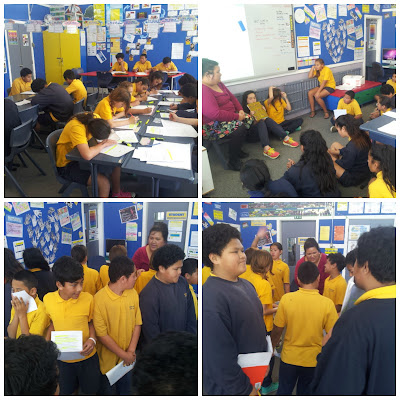Mrs Manuyag did an awesome art lesson on the first day back as part of the Inquiry Unit's big reveal. The students created representations of our solar system, with planets, the Sun, and an asteroid belt using inspiration from the Mandala art technique.
Students are organised into small groups and start off at one of the bus stop questions. Before the activity started we had a rousing whole class discussion to get the brain juices flowing before setting off for quick fire stops. Students had around 2mins at each question to jot down their ideas.
Once all the groups had answered each of the questions we had a feedback session where groups identified the top 5 answers on their sheet. I recorded these ideas on a class presentation for the students to refer to and add to as a follow up activity. The feedback session generated some more interesting discussion and I can already tell this Inquiry topic is really going to generate some great questioning and debate amongst the students.
Onwards and Upwards - To Infinity and Beyond!
Oh and yes we have already had lots of giggles when mentioning the 7th planet in our Solar System, whoever named Uranus has a lot to answer for!
Oh and yes we have already had lots of giggles when mentioning the 7th planet in our Solar System, whoever named Uranus has a lot to answer for!

















